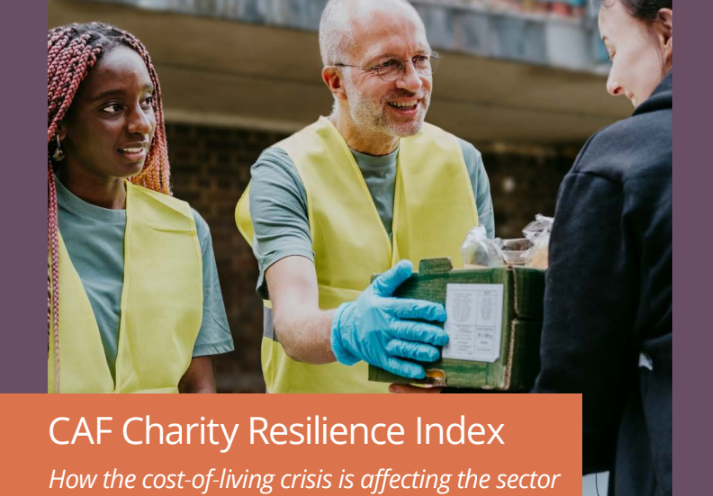Half of charities in England are having to use their reserves to meet running costs as they battle for survival amid the cost-of-living crisis, analysis has found.
Charities in the North of England are the most likely to raid reserves, with 63% of this region’s voluntary sector using this money to meet running costs.
The findings haver emerged in the Charities Aid Foundation (CAF)’s resilience index, based on surveys with charities on how they are being impacted by the cost-of-living crisis. More than 1,300 charities across the UK took part in the survey.
CAF fears the impact of the crisis on charities could worsen as government’s support for the sector to meet energy costs is to be cut from April.
This follows a sustained period of rising demand, falling income and the value of donations eroded by inflation.
Three in five charities are reporting an increase in demand compared to last year and a quarter say this rise is “significant”.
Less than a third have high levels of confidence in their current funding, CAF’s survey also found. More than half (53%) of charities are now concerned they will not survive the cost of living crisis, up from a third (35%) when asked in April 2022.
Seven in ten charities supporting disabled people, children and older people say they are worried about their long term future.
“Many charities face prolonged uncertainty as they continue to deal with rising demand for their help, increased costs and falling donation income – unlike businesses they cannot pass extra costs on to consumers,” CAF said.
“Even as the economic outlook might look brighter than feared, charities are saying loud and clear that they are still facing the squeeze,” added CAF chief executive Neil Heslop.
“The dramatic cut in Government support for energy bills from April will put many charities in an even more precarious position, particularly those who are helping the most vulnerable.
“But they are not businesses and have no way to pass their costs on. The Chancellor should use his upcoming Budget to acknowledge the contribution charities are making – and provide the additional ongoing support they need to face the future with confidence.”
Latest News
-
Youth homelessness charity forced to turn away young people due to demand surge
-
Funder offers charities ‘social change’ grants of up to £50,000 to boost training
-
Navy charity handed £368,500 to support submariners’ families
-
Former football charity chief to lead sports and culture charity
-
From comics to crockery: the best places for charity shop sales revealed
-
Three arrests made amid ‘large-scale theft' of charity clothes donations
Charity Times video Q&A: In conversation with Hilda Hayo, CEO of Dementia UK
Charity Times editor, Lauren Weymouth, is joined by Dementia UK CEO, Hilda Hayo to discuss why the charity receives such high workplace satisfaction results, what a positive working culture looks like and the importance of lived experience among staff. The pair talk about challenges facing the charity, the impact felt by the pandemic and how it's striving to overcome obstacles and continue to be a highly impactful organisation for anybody affected by dementia.
Charity Times Awards 2023
Mitigating risk and reducing claims

The cost-of-living crisis is impacting charities in a number of ways, including the risks they take. Endsleigh Insurance’s* senior risk management consultant Scott Crichton joins Charity Times to discuss the ramifications of prioritising certain types of risk over others, the financial implications risk can have if not managed properly, and tips for charities to help manage those risks.
* Coming soon… Howden, the new name for Endsleigh.
* Coming soon… Howden, the new name for Endsleigh.
Better Society

© 2021 Perspective Publishing Privacy & Cookies











Recent Stories